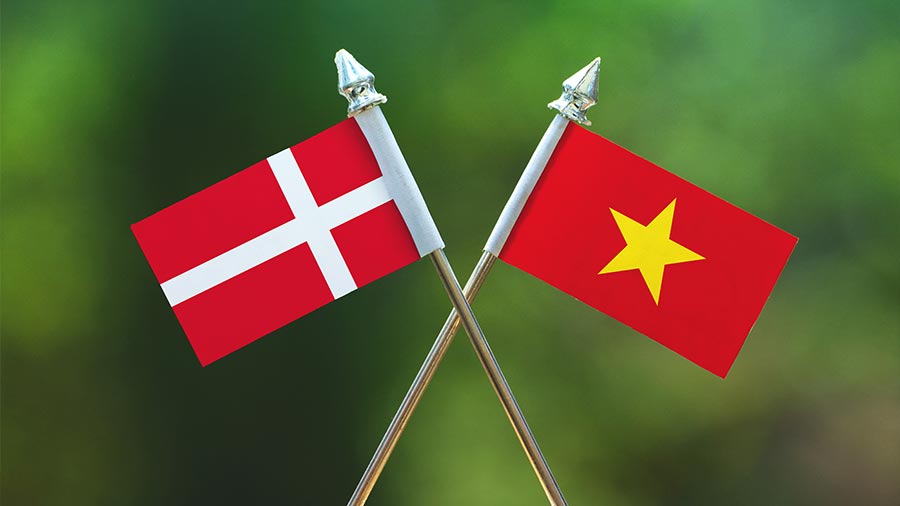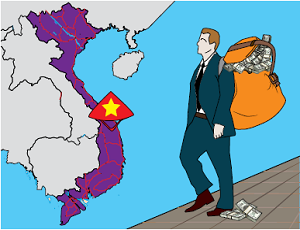Vietnam Updates Visa Categories, Expands Visa-Free Access
HANOI – Vietnam’s Law on Entry, Exit, Transit, and Residence of Foreigners in Vietnam came into effect on January 1, 2015, doubling the number of visa categories to 20.
Of particular note, foreigners are no longer permitted to change their visa category once inside Vietnam. Therefore, the option of arriving on a tourist visa, applying for a work permit and changing visa categories is no longer available. Rather, the work permit should be applied for according to the Labor Code, and the appropriate visa obtained outside of Vietnam, in a process expected to take one to two weeks. Depending on the nationality of the work permit applicant, this may mean applying in the country or territory which issues their travel documents.
 RELATED: Dezan Shira & Associates’ Payroll and Human Resources Services
RELATED: Dezan Shira & Associates’ Payroll and Human Resources Services
Relevant categories for foreign workers are the ĐT visa for foreign investors and lawyers, the NN1, 2, and 3 visas for those in representative offices or projects of foreign non-governmental organizations (NGOs) or international organizations (IOs), or other foreign cultural, economic of professional organizations, and the DN and LĐ visas for those working in Vietnam.
Ambiguity remains around the distinction between the DN visas for those “who come to work with companies in Vietnam” and the LĐ visa for those “who come to work”. DN visas are valid for up to 12 months, LĐ visas for up to two years, and ĐT visas for up to five years. LĐ visa holders would also be eligible for temporary residence permits. The law provides for five year residency cards to be issued to foreigners, as opposed to the previous three. Individuals with such residency cards would be permitted to sponsor foreigners to enter the country.
Those with residences in which foreigners may stay are now obliged to be connected to the internet and to declare the presence of foreigners to the Vietnamese government electronically.
Visa free access granted to additional countries
In related news, visa-free access to Vietnam has been granted for tourists from Denmark, Finland, Japan, Norway, Russia, South Korea, and Sweden for stays of up to 15 days according to Resolution No.99/NQ-CP issued on December 29 of last year and applying from January 1, 2015 until December 31, 2019.
![]() RELATED: Vietnam Visa and Work Permit Procedures
RELATED: Vietnam Visa and Work Permit Procedures
Vietnam already has similar visa waiver policies in place for ASEAN member states. Separate visa waiver policies also apply to those visiting the island of Phu Quoc.
The new law mandates a 30 day minimum gap between visits of those entering Vietnam via visa-free access. Those visiting special administrative or economic zones in border areas would no longer be required to obtain a visa.
Expansion of visa-free access was proposed by the Ministry of Transport in September 2014 to citizens of Australia, France, Germany, India, and the UK. Such access had been proposed for Taiwanese (ROC) citizens, but the inclusion of “diplomatic relations with Vietnam” as a criterion for granting visa-free access to residents may preclude this.
In December 2014, the Vietnam Immigration Department held training sessions in Hanoi and Ho Chi Minh City in order to ensure the proper implementation of the new laws. In addition, Director Le Thanh Dung and Deputy Director Tran Van Du of the Immigration Department have provided instructions and answered questions on the law from interested parties.
The new law is expected to support the government’s goal of welcoming 8.3-8.5 million foreign tourists to the country in 2015, up from 7.9 million in 2014. This influx of tourists has attracted many foreign investors to the country who are seeking to set up travel related businesses. For more information on visas and the potential business opportunities available in Vietnam, please contact vietnam@dezshira.com.
|
Asia Briefing Ltd. is a subsidiary of Dezan Shira & Associates. Dezan Shira is a specialist foreign direct investment practice, providing corporate establishment, business advisory, tax advisory and compliance, accounting, payroll, due diligence and financial review services to multinationals investing in China, Hong Kong, India, Vietnam, Singapore and the rest of ASEAN. For further information, please email vietnam@dezshira.com or visit www.dezshira.com. Stay up to date with the latest business and investment trends in Asia by subscribing to our complimentary update service featuring news, commentary and regulatory insight. |
Import and Export: A Guide to Trade in Vietnam
In this issue of Vietnam Briefing Magazine, we provide you with a clear understanding of the current business trends related to trade in Vietnam, as well as explaining how to set up your trading business in the country. We also attempt to give perspective on what will be Vietnam’s place in the Association of Southeast Asian Nations (ASEAN) in 2015, and look at some of the country’s key import and export regulations.
 Tax, Accounting, and Audit in Vietnam 2014-2015
Tax, Accounting, and Audit in Vietnam 2014-2015
The first edition of Tax, Accounting, and Audit in Vietnam, published in 2014, offers a comprehensive overview of the major taxes foreign investors are likely to encounter when establishing or operating a business in Vietnam, as well as other tax-relevant obligations. This concise, detailed, yet pragmatic guide is ideal for CFOs, compliance officers and heads of accounting who need to be able to navigate the complex tax and accounting landscape in Vietnam in order to effectively manage and strategically plan their Vietnam operations.
 An Introduction to Doing Business in Vietnam 2014 (Second Edition)
An Introduction to Doing Business in Vietnam 2014 (Second Edition)
An Introduction to Doing Business in Vietnam 2014 (Second Edition) provides readers with an overview of the fundamentals of investing and conducting business in Vietnam. Compiled by Dezan Shira & Associates, a specialist foreign direct investment practice, this guide explains the basics of company establishment, annual compliance, taxation, human resources, payroll, and social insurance in the country.
- Previous Article Vietnam’s Minimum Wage Increases
- Next Article Vietnam erhöht Mindestlohn – Eine gute Idee?


































